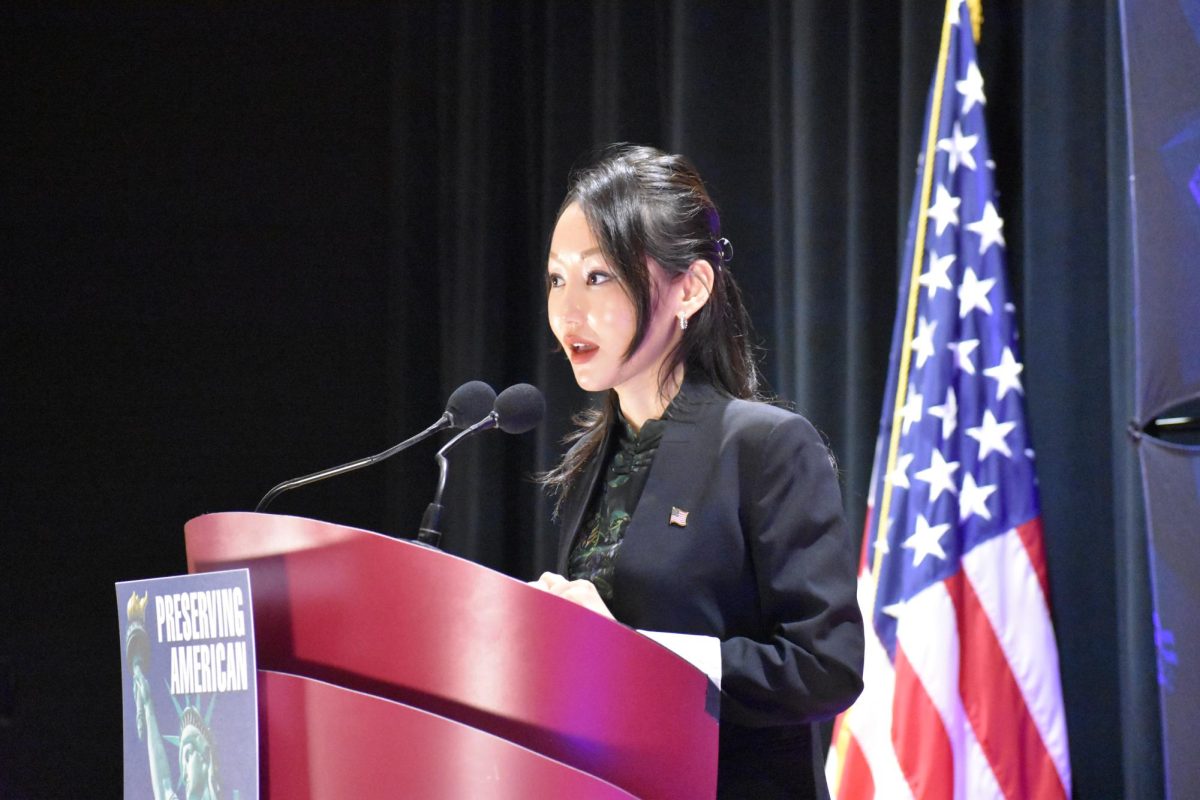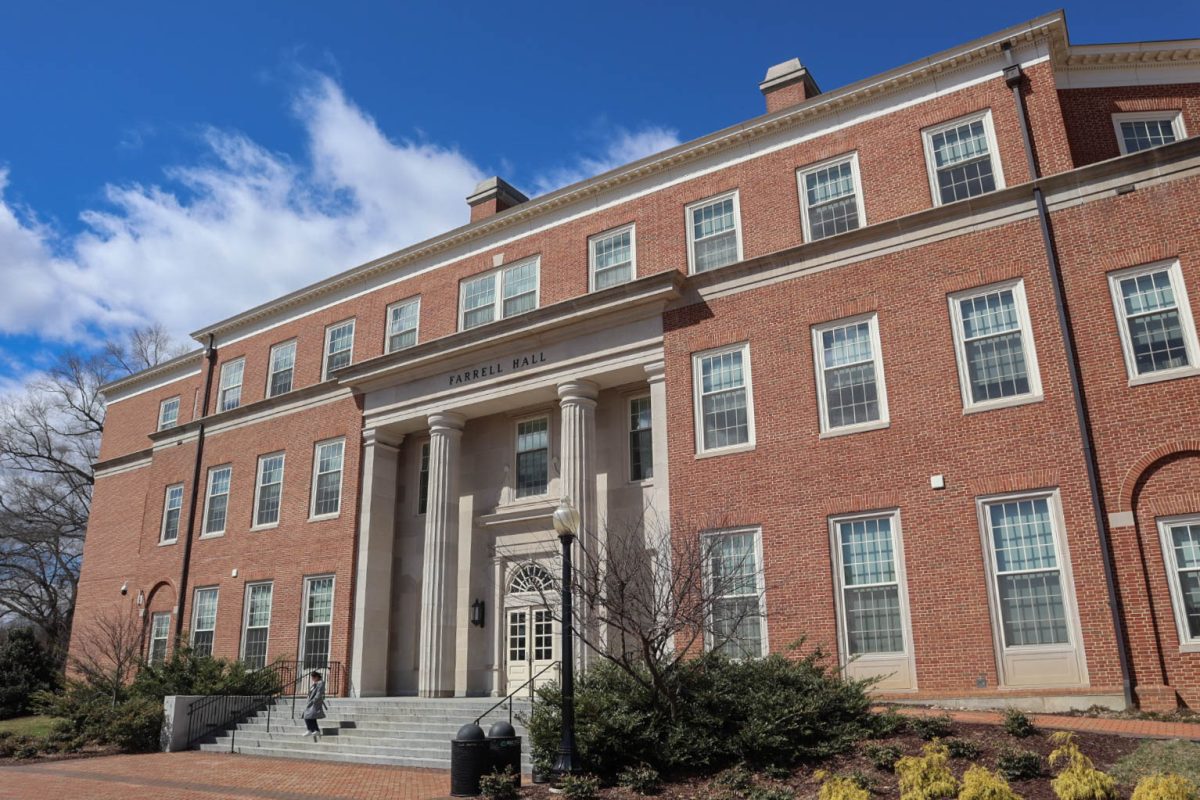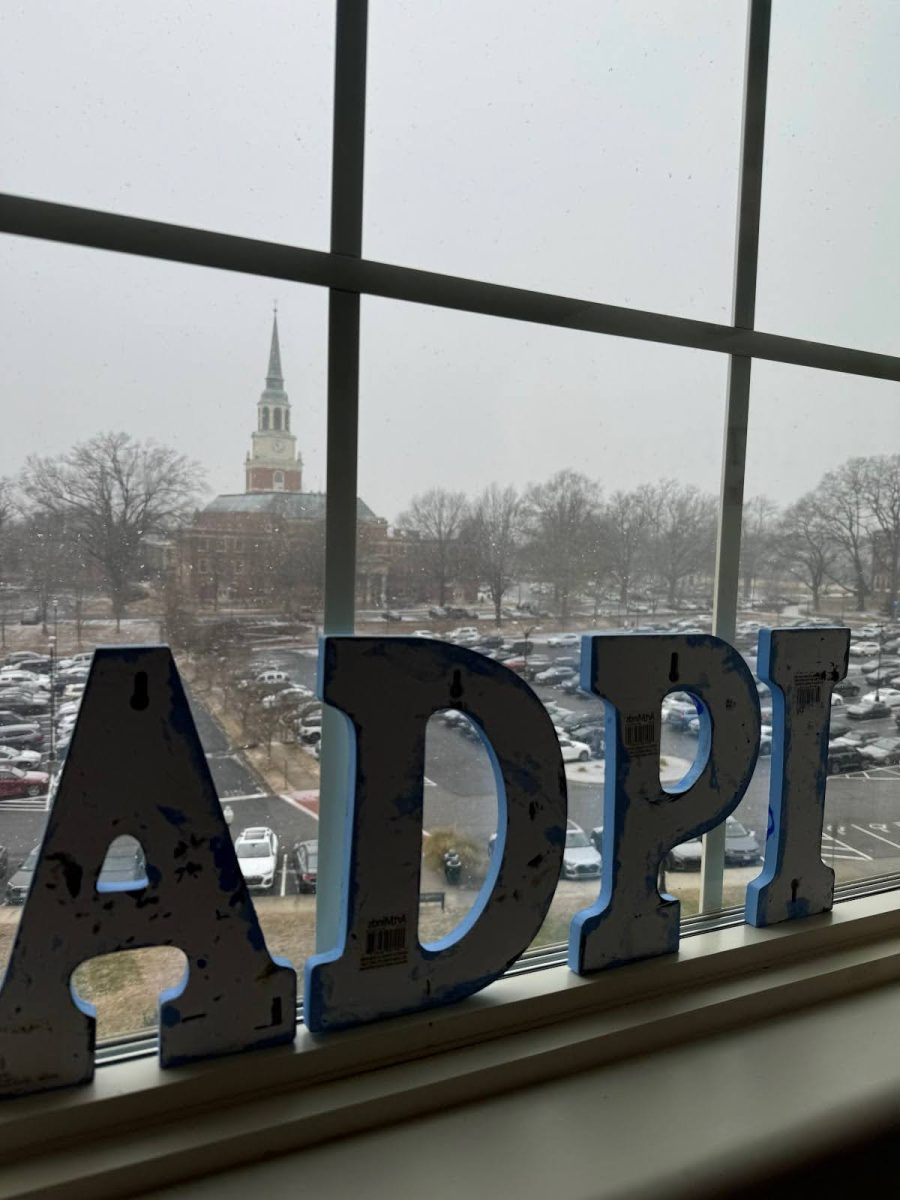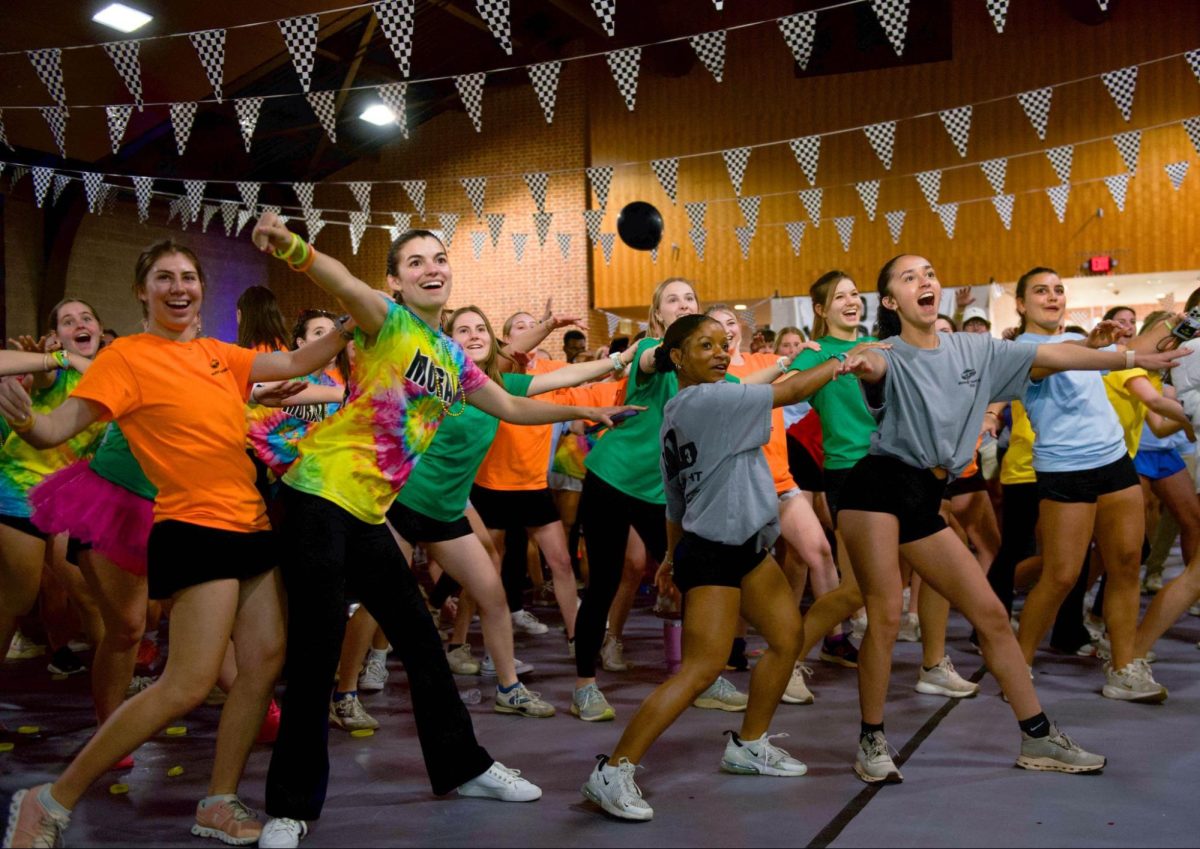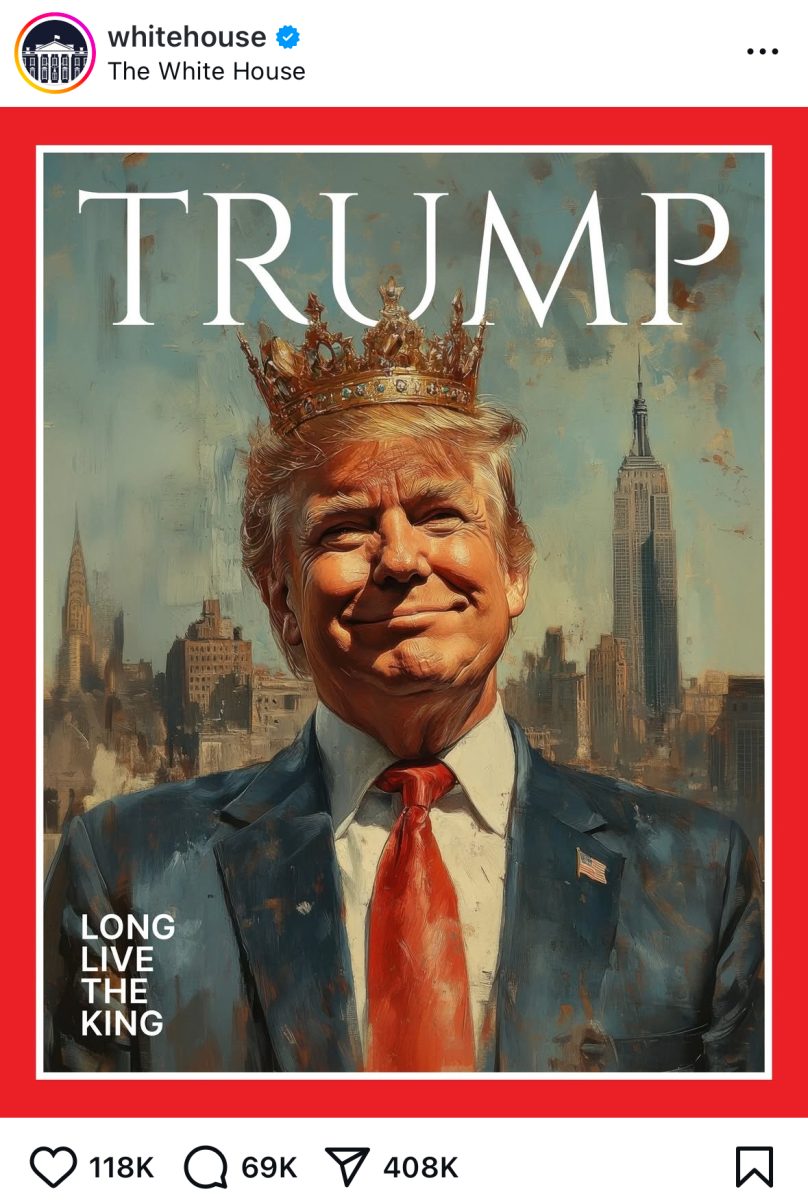Last week, Yeonmi Park, the North Korean defector turned right-wing commentator, gave a paid speech at Wake Forest University. The event was presented by the Wake Forest chapter of Young Americans for Freedom (YAF).
Park, a well-spoken and intelligent individual, railed against communism and its deleterious effects on civil and political society in North Korea — her home country — and China. Yet her condemnation of communist ideology is not the reason why her speaking tours are sponsored by conservative groups and occur frequently on right-wing channels.
Park attempts to establish a throughline between communist authoritarianism and progressive illiberalism in the form of “cancel culture” on college campuses and beyond, which she has said is “the first step toward North Korean-style firing squads.” Through this lens, conservatives see Park’s experience as a valuable tool in the fight for the minds of impressionable young adults, who they fear are increasingly left-leaning with illiberal attitudes.
For more than a decade since she began her ascension into being a public figure, Park’s story has been filled with inconsistencies. Numerous journalists, academics and fellow defectors have questioned the veracity of her accounts and her goals in speaking out. As a result, students have asked questions about the role YAF plays in elevating her alleged falsehoods into the public sphere and the parallel responsibility of her hosts in ensuring that her speech is informative, accurate and valuable to the viewing public.
Lambert Li’s article, “Wake Forest shouldn’t host propaganda,” is a measured assessment of Park that criticizes her ability to speak without pushback. He is right that there is no countering presence, leaving her unencumbered by the burden of truth and free to simplify complex realities into soundbites.
With an audience that is likely both enthralled by her exaggerated anecdotes and uninformed of past critiques, he argues that the room effectively turns into a “brainwashing” session.
Li might not be wrong here, but he is wrong when he insists the solution to this problem is banning any divisive figures, with histories of inaccurate statements, from speaking at Wake Forest. He asserts that since divisive figures can leave an “impact” on the student body, Wake Forest should therefore bar “politically skewed” speech by intellectuals whose claims are “inconsistent.” He provides the typical caveat from illiberal thinkers that “propaganda does not equal the freedom to express.” But free to express what? Li himself asserts his desire to “limit” the speech of guest speakers in the name of free expression. There is a blatant contradiction inherent in Li’s definition of free speech.
If Wake Forest decides someone’s speech is propaganda, an idea inherently imbued with ambiguity, Li supposes they would be justified in limiting it, if not banning it outright. Wake should not refuse to allow accusations of “propaganda” to restrict campus expression in any way.
The student body has a right to exercise their intellectual curiosity by hearing out those with different, even disagreeable points of view. Few could likely agree on where the line between speech that clashes with our views ends and speech that functions as propaganda begins. Instead, Wake Forest should follow the advice of Supreme Court Justices William O. Douglass and Oliver Wendell Holmes, two of the most ardent supporters of civil liberties in the Court’s long and storied history. Their promotion of the “marketplace of ideas,” where speech can be debated openly and freely to ensure the best ideas are adopted and inferior ideas are abandoned, should be a model for Wake Forest’s conceptions of speakership and expression.
Free speech is not — and cannot — be muzzled speech. It is the heartbeat of our, and every other, campus in the United States.
While Li is no Herbert Marcuse, who argued that colleges should strictly ban right-wing speech only in order to achieve egalitarian social values, his standard of rejecting all inconsistent, propaganda-spewing speakers is untenable. Park is a political actor, with her own predilections guiding her speech and activity. She would assuredly be banned. But so would Greta Thunberg, the acclaimed climate change activist.
Thunberg has been known, like Park, to make exaggerated statements that lack popular support, like seeking to convict oil companies of “crimes against humanity.” Would we ban her from our campus in the name of rejecting propaganda? Thunberg’s description of the urgency of the climate crisis in relation to its temporal impact is also disputed. Should we have someone sitting next to her during a hypothetical speech, contradicting her along the way?
Politicians might be also barred from our campus if Wake adopted Li’s ideas; after all, George W. Bush’s Iraq War was preceded by an international propaganda campaign to convince the world of the false notion that Saddam Hussein possessed a nuclear weapons program. Certainly, despite Bush’s propaganda, he remains a speaker who should be welcomed, not banned. Standards of inconsistency are even harder to enforce; former Speaker of the House Kevin McCarthy has repeatedly flip-flopped on his assessment of the Jan. 6 insurrection. He blamed former President Trump on the day, yet now says Trump holds no responsibility at all . He seemingly tells a different story every other week to save his political ambitions. Despite this inconsistency, McCarthy remains a valuable speaker due to his experience, intelligence and impact. A history of “smears and willful lies” should not make someone off limits. Rather, the opposite is true; it should encourage our Wake Forest community to approach this speaker with an open and engaged mind, and just a healthy hint of skepticism.
It should remain an honor to host activists and politicians for conversation, not a controversy.
Li’s proposed top-down, authoritative approach to speaker selection is misguided. Anyone should be welcome to speak on Wake Forest’s campus provided they meet the current event guidelines of our university. There is no need to adopt new standards for speakers. If one group disagrees with the views of a certain speaker, they should feel empowered to bring in an opposing speaker the next week.
Wake Forest students are educated, global scholars — let us decide for ourselves whose arguments we find more persuasive. We do it in our classrooms every day. The auditorium is no different.


